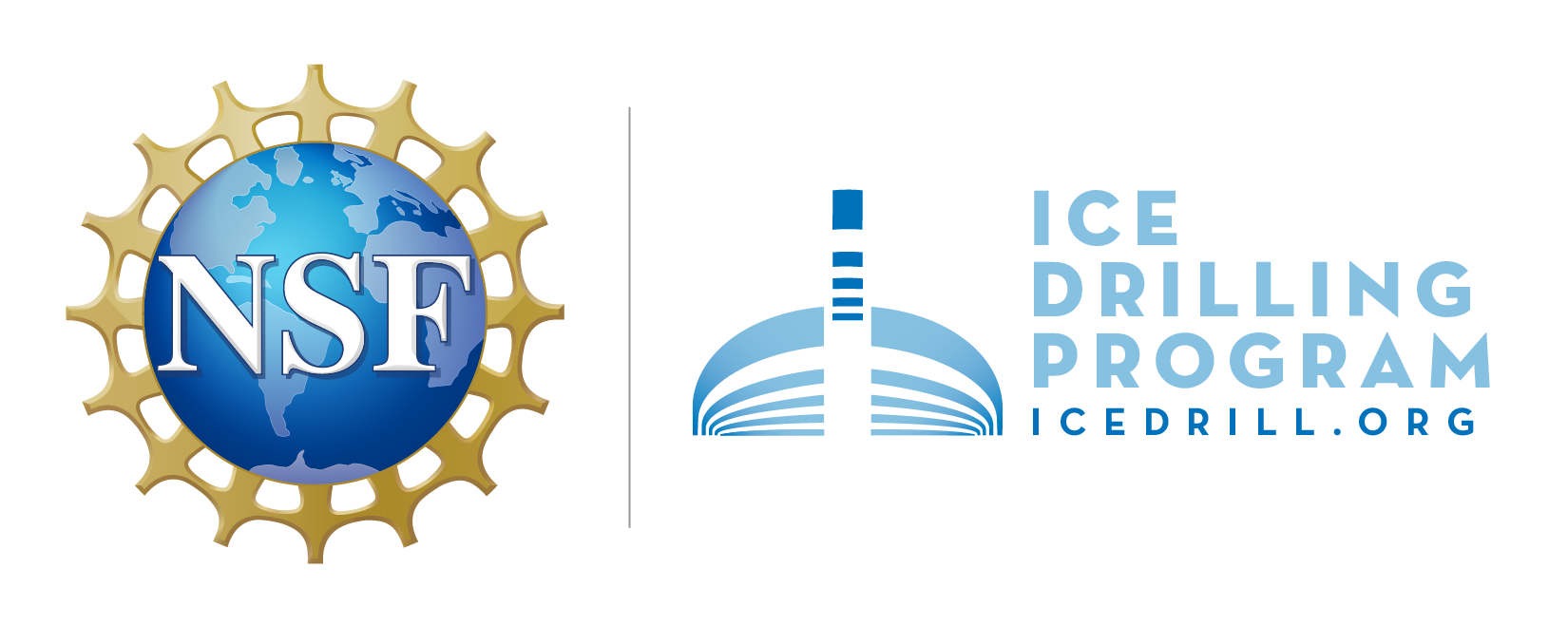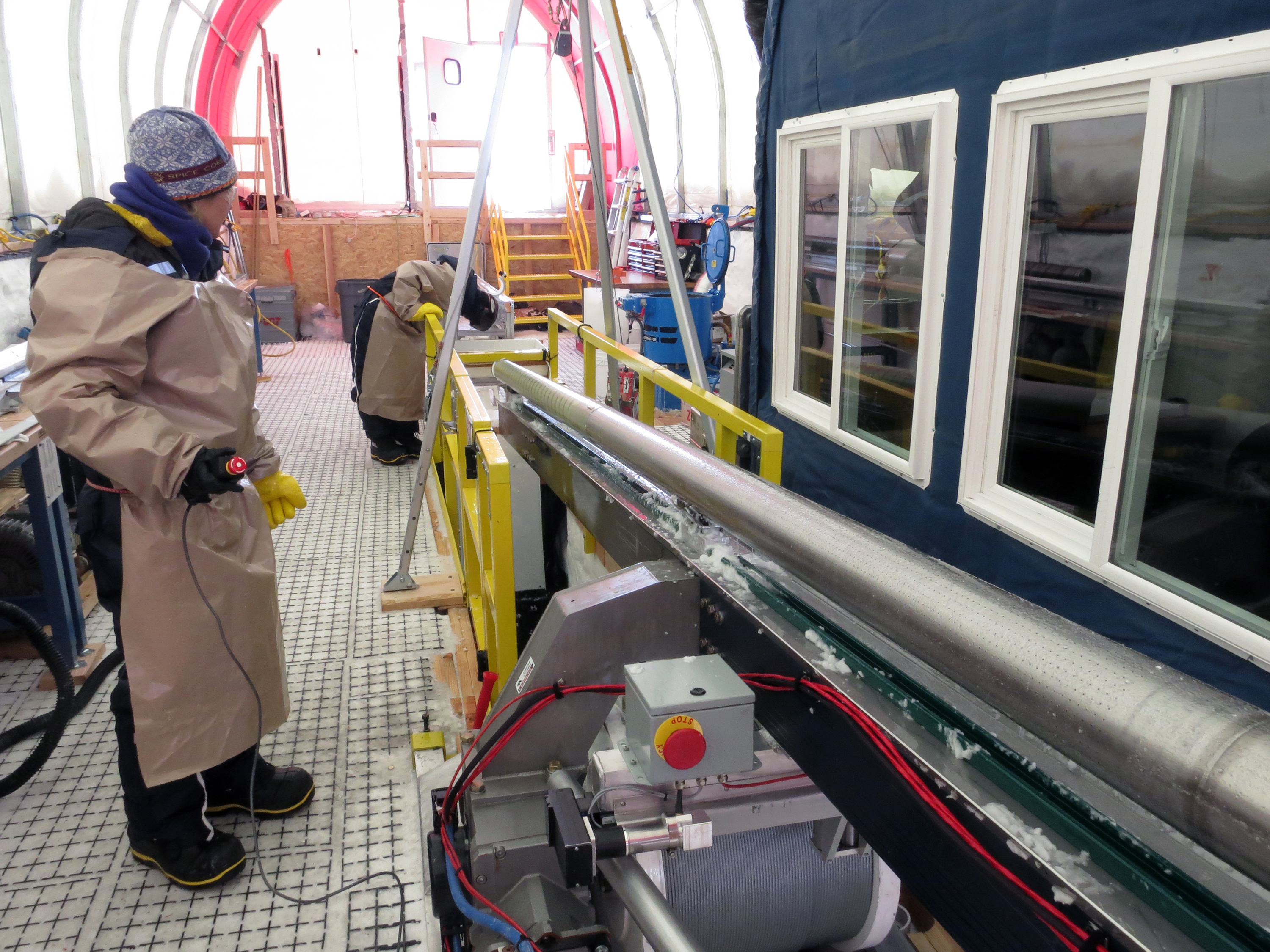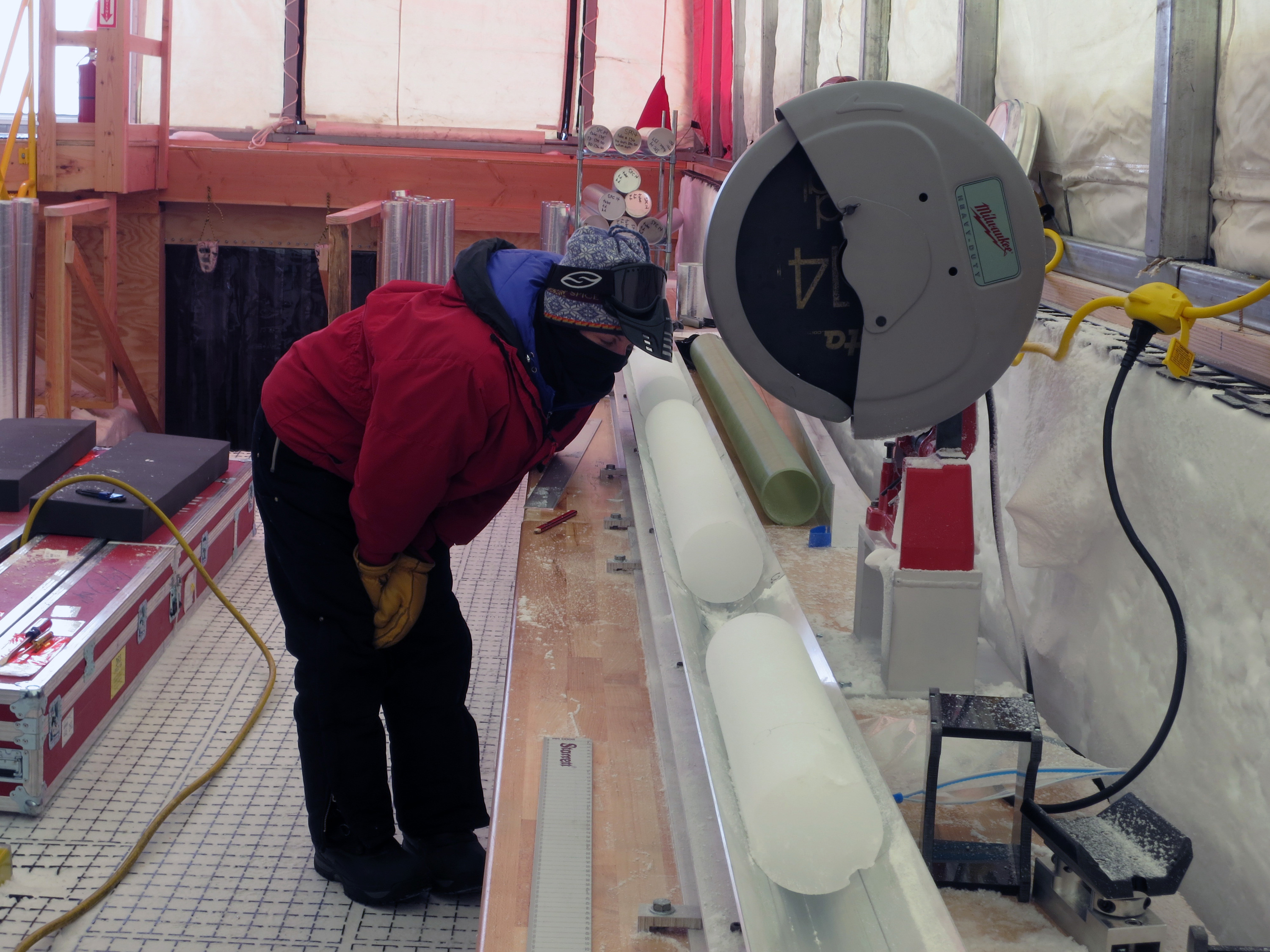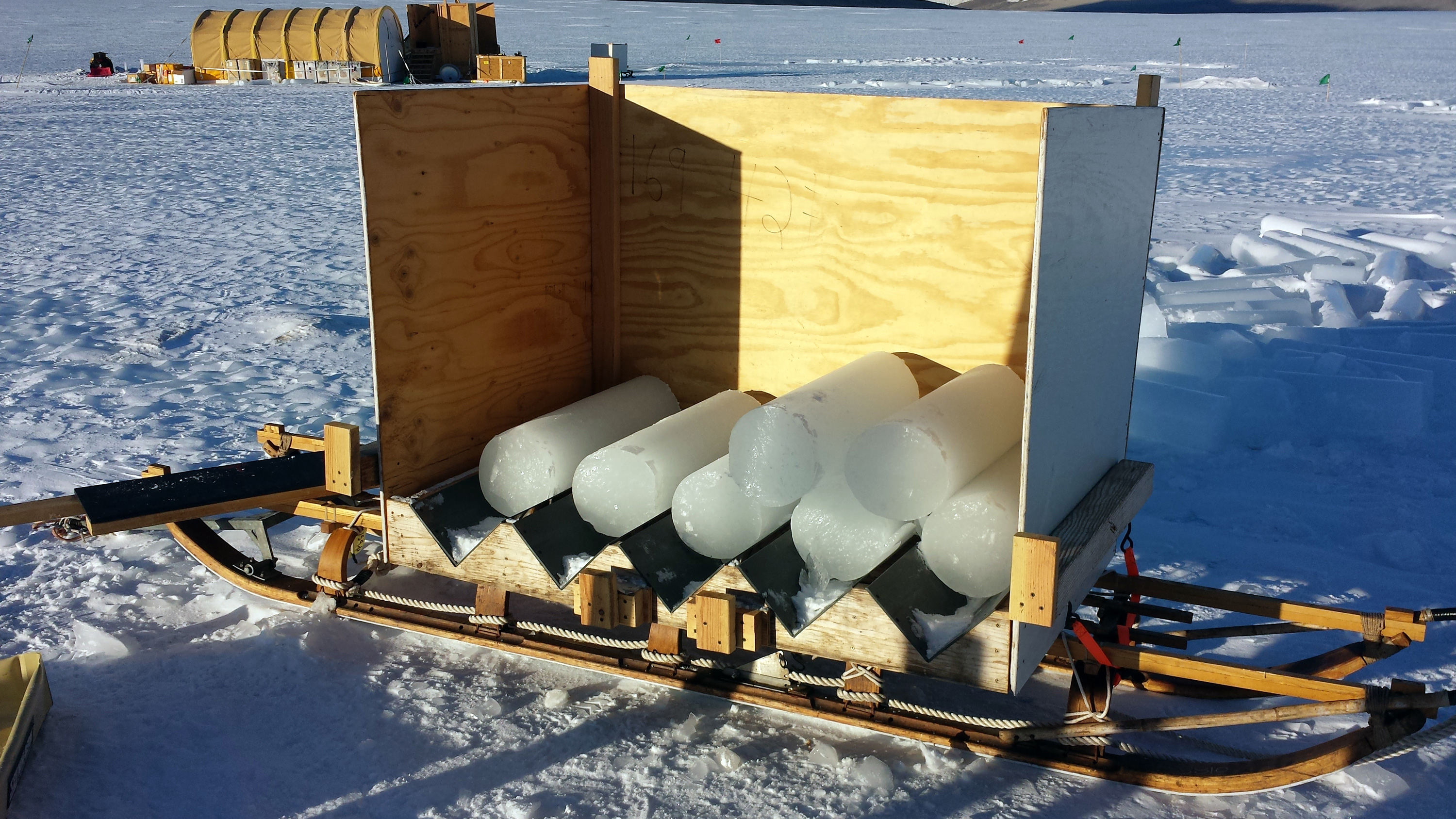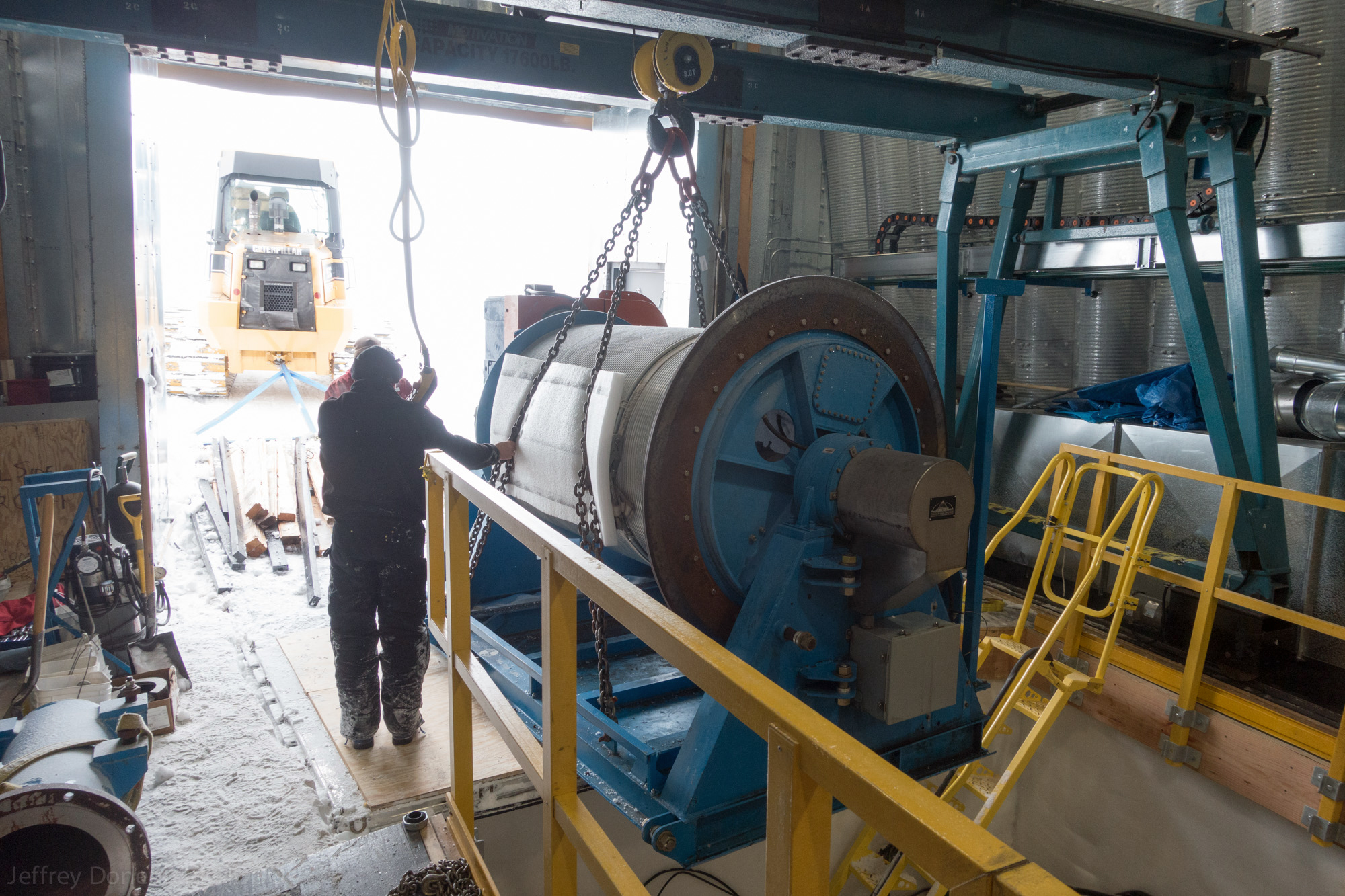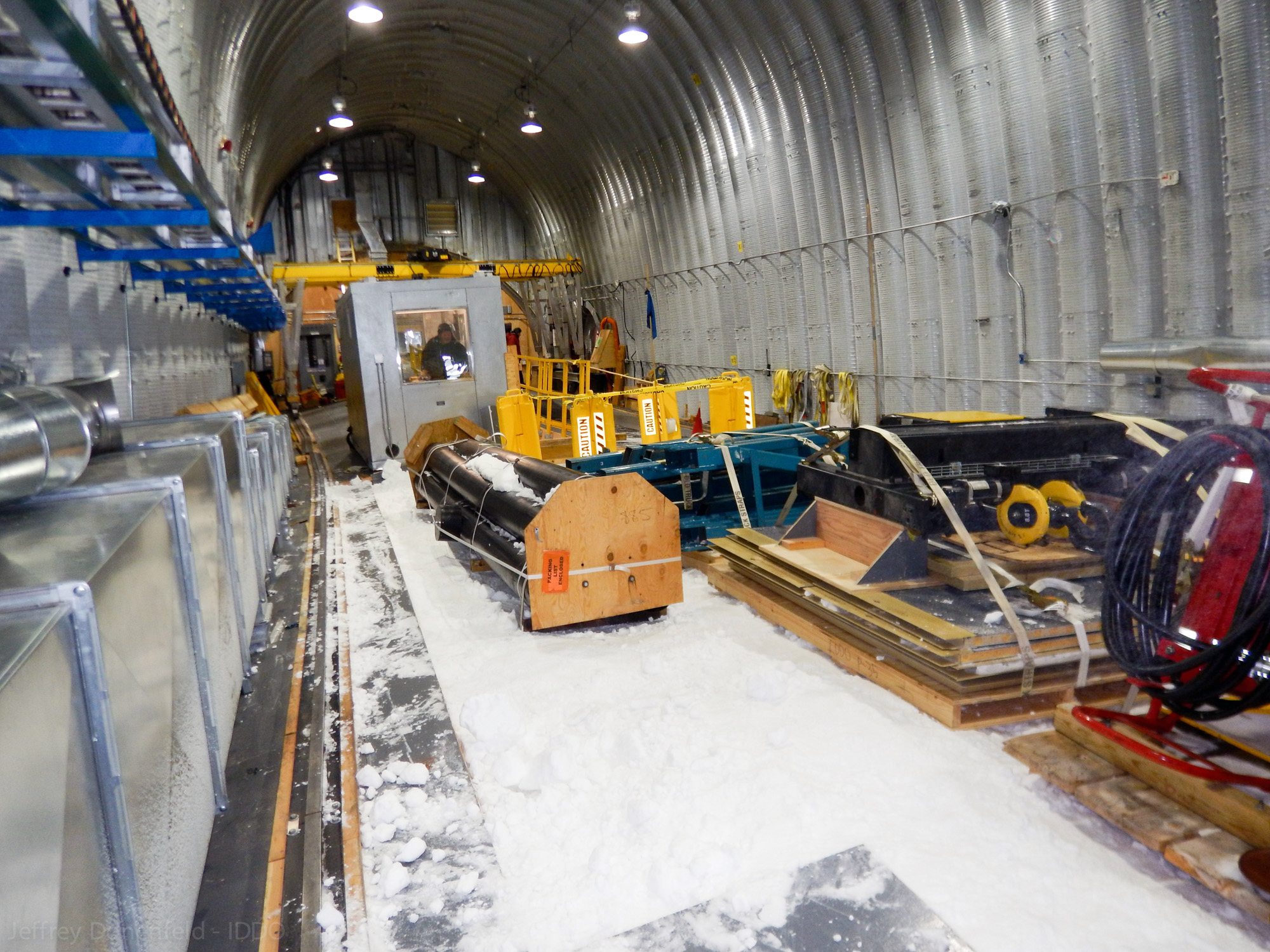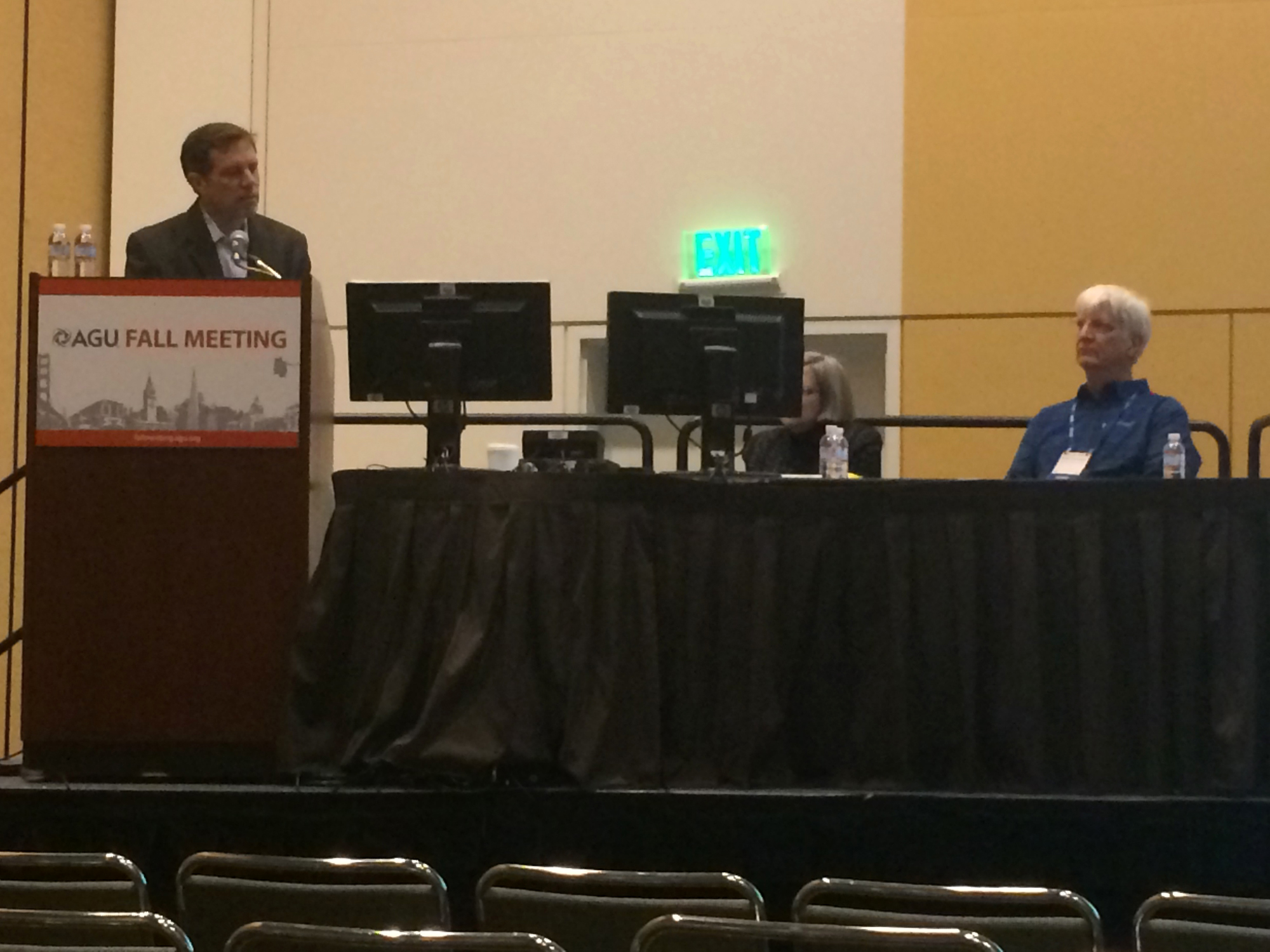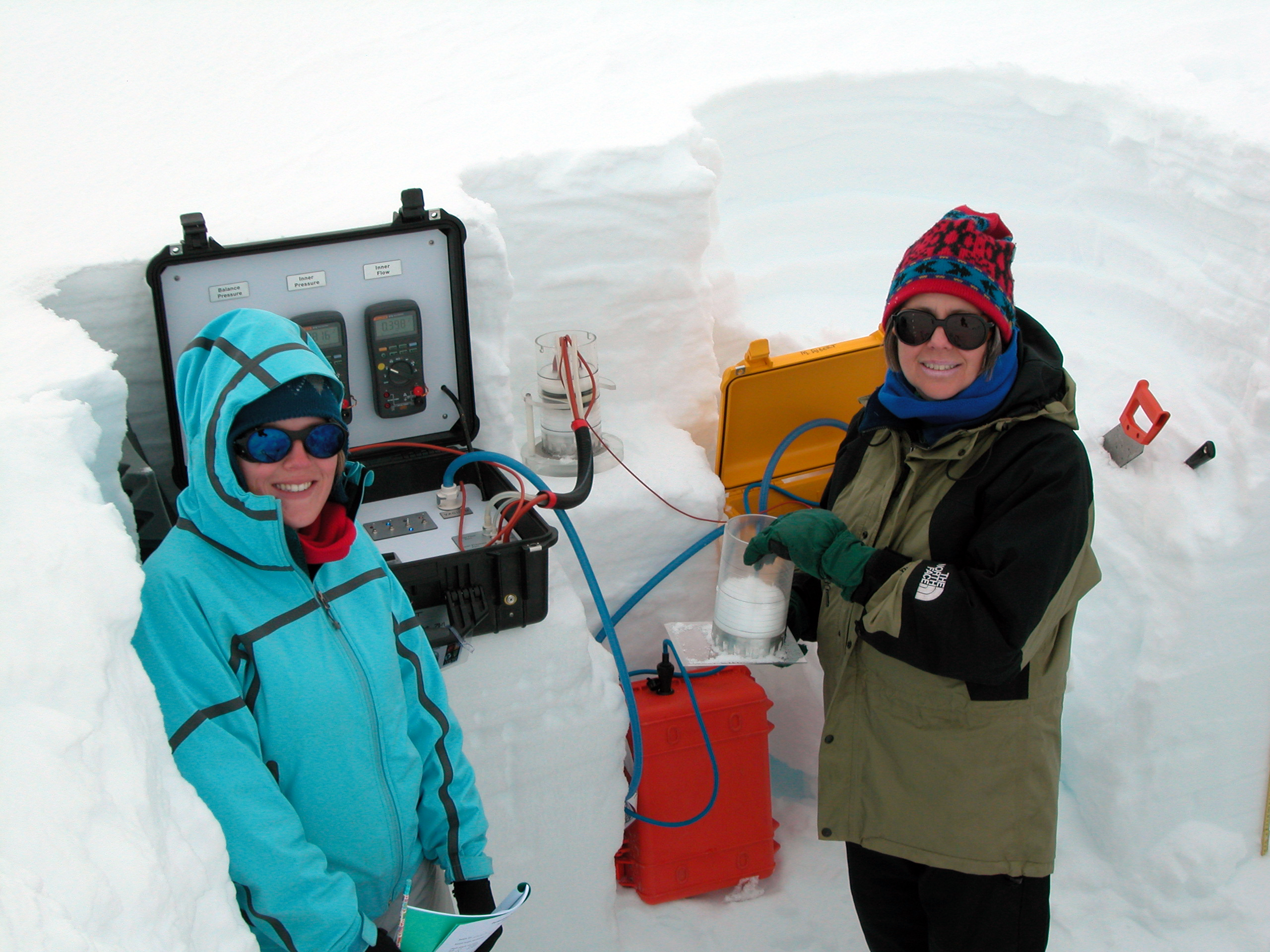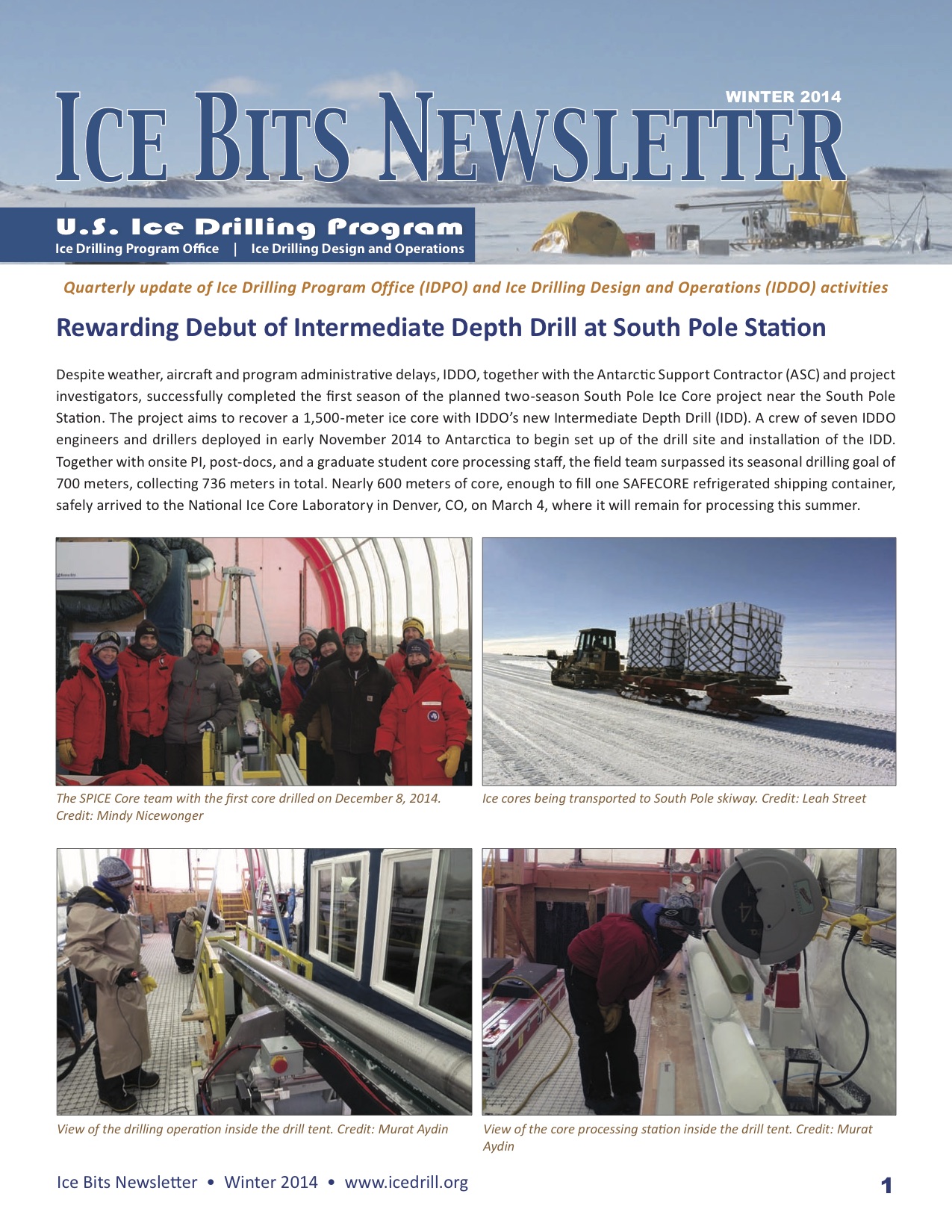Despite weather, aircraft and program administrative delays, IDDO, together with the Antarctic Support Contractor (ASC) and project investigators, successfully completed the first season of the planned two-season South Pole Ice Core project near the South Pole Station. The project aims to recover a 1,500-meter ice core with IDDO's new Intermediate Depth Drill (IDD). A crew of seven IDDO engineers and drillers deployed in early November 2014 to Antarctica to begin set up of the drill site and installation of the IDD. Together with onsite PI, post-docs, and a graduate student core processing staff, the field team surpassed its seasonal drilling goal of 700 meters, collecting 736 meters in total. Nearly 600 meters of core, enough to fill one SAFECORE refrigerated shipping container, safely arrived to the National Ice Core Laboratory in Denver, CO, on March 4, where it will remain for processing this summer.
Rewarding Debut of Intermediate Depth Drill at South Pole Station
- Intermediate Depth Drill (IDD)
- Fieldwork
Continued Success on Taylor Glacier
- Blue Ice Drill (BID)
- Fieldwork
On Taylor Glacier in the Dry Valleys region, driller Mike Jayred successfully drilled over 930 meters of large-diameter ice cores for PIs Vas Petrenko, Ed Brook and Jeff Severinghaus using the IDDO Blue Ice Drill. Over 1,000 drill runs were completed and 52 holes were drilled. Cores were again melted onsite for in-field gas analysis. The Blue Ice Drill is now being returned to Madison for minor repairs, cleaning, and re-packing prior to its use in Greenland in May.
WAIS Divide Schedule Challenges and Achievements
- DISC Drill
- Fieldwork
With the 2013-2014 field season at WAIS Divide canceled due to the government shutdown, IDDO re-planned its efforts for 2014-2015 for disassembly and packing of the DISC Drill at the site. Four IDDO personnel deployed from the U.S. in early December, and three ended up facing 20 days of aircraft and weather delays in McMurdo. With excellent teamwork between IDDO, ASC, and the borehole logging scientists (also at WAIS Divide this year), as well as NSF and ASC's willingness to extend the field season at WAIS Divide in light of the delays, the teams were able to successfully complete the majority of logging objectives for the season! In addition the team was able to dismantle much of the DISC Drill equipment in a very short amount of time. A portion of the drill will now return to Madison and the rest will remain at WAIS Divide over winter until future flight opportunities in 2015-2016. IDDO and ASC will continue to work closely together to plan for disassembly and removal of the remaining items from the drill arch, including IDDO's yellow gantry crane, the crane rails, and the drill control room, as well as to coordinate extending of the borehole casing up to the arch floor level next year.
ASIG Drill Development Project Paves the Way for Subglacial Access
- Agile Sub-Ice Geological Drill
Initiating work in PY 2014, IDDO continued with design efforts in the development of the new Agile Sub-Ice Geological (ASIG) Drill. The relatively compact system will be able to drill access holes through ice and subsequently collect bedrock cores from beneath glaciers. Such capability was identified as a high priority in the U.S. Ice Drilling Program's Long Range Science Plan. The new drill is based on a commercially-available minerals exploration rig, currently in production, with IDDO designing and fabricating auxiliary systems such as ice coring attachments, fluid, and ice chip handling and filtration systems. As the Rapid Access Ice Drill (RAID) project works to fabricate and test a larger-scale system based on similar principles, the staffs at IDDO and RAID have worked well in communicating ideas with one another, taking advantage of synergistic opportunities between the two development projects.
IDPO Hosts Successful Town Hall at AGU 2014 Fall Meeting
- Long Range Plans
- Meetings/ Workshops
On December 15, 2014, the fifth annual Town Hall on Scientific Drilling in the Polar Regions organized by Mary Albert was held at the American Geophysical Union meeting in San Francisco. This year John Goodge was the co-convener. The event provided the research community with updates on IDPO-IDDO (Mary Albert), International Partnerships in Ice Core Sciences (IPICS; Ed Brook and Dorthe Dahl-Jensen), RAID (John Goodge and Blaise Stephanus), WISSARD (Slawek Tulaczyk), and NSF (Lisa Clough and Nature McGinn), and also included interactive discussion with the audience. The successful event included approximately 75 attendees.
NSTA Web Seminar – Fire and Ice: Snow Albedo and Our Future
- Education/ Outreach
Join us on Wednesday, April 29, 2015 from 6:30-8:00 EST for a National Science Teachers Association (NSTA) web seminar, presented by IDPO's Mary Albert, Alden Adolph and Linda Morris. Entitled "Fire and Ice: Snow Albedo and Our Future", the event will cover what caused the recent big Greenland ice sheet melt, and share reasons why understanding your regional albedo is important to your future. Details are available at the link below. The event is free.
Registration is required and is available at:
http://learningcenter.nsta.org/products/symposia_seminars/NLC/webseminar53.aspx
